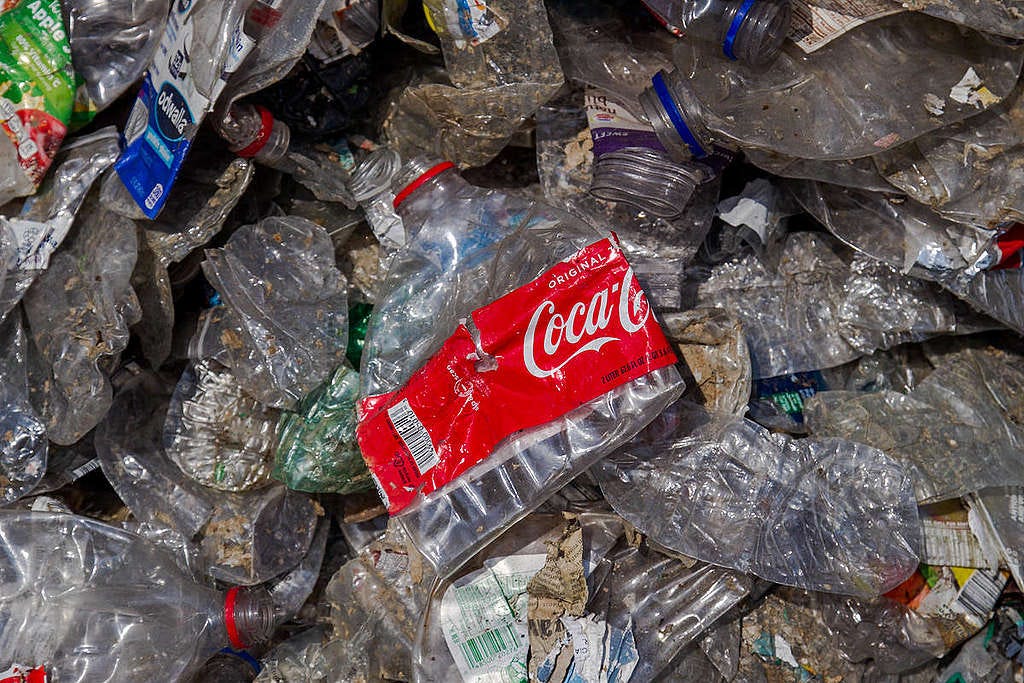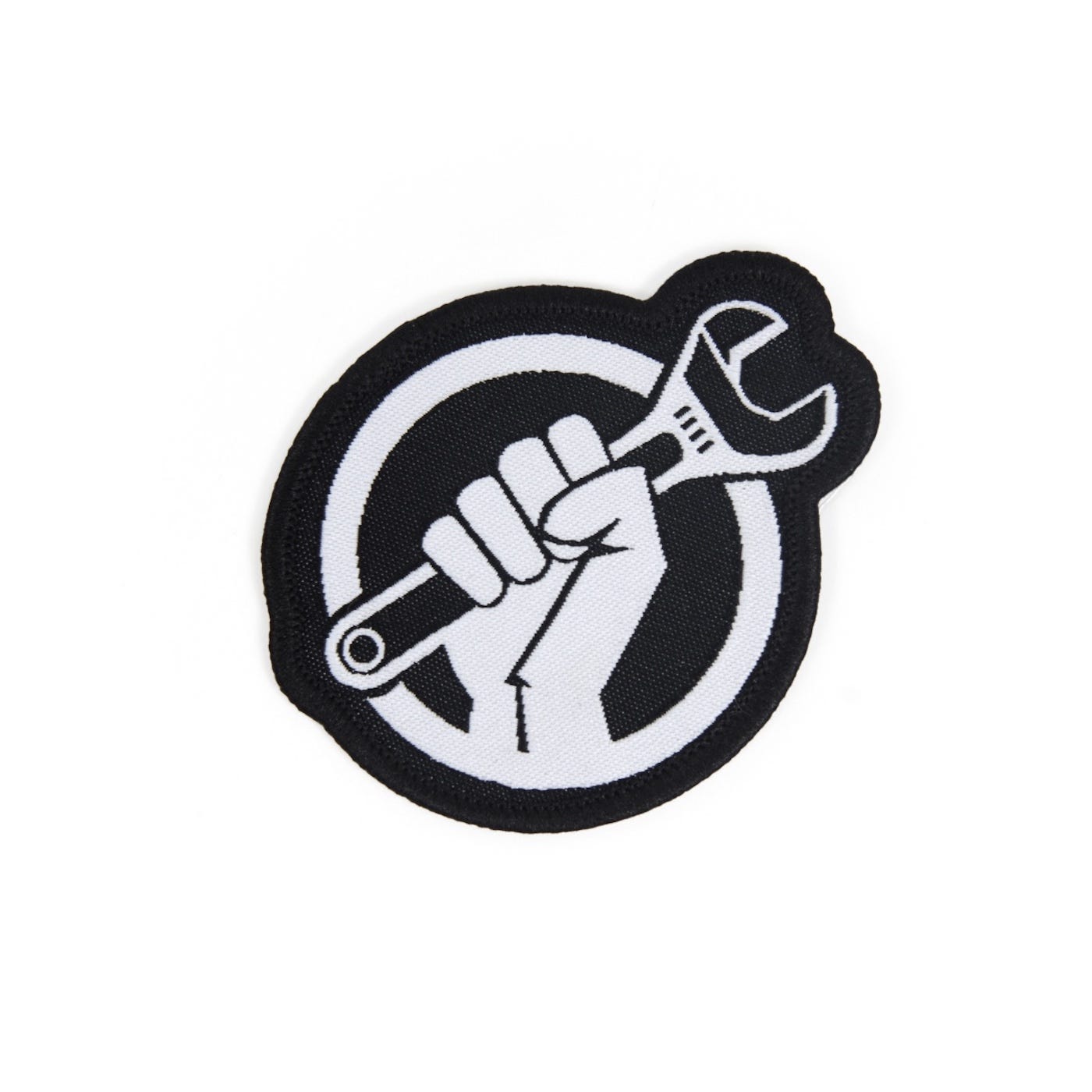The Green Economy Is A Lie
Companies are making the term "green" and "circular" meaningless, but repair can offer a more mindful approach to consumption.
In the world of right to repair, I’ve become more and more frustrated at the level of buzzword-speak companies use. They talk about “driving innovation” toward “circular economies” to describe minor tweaks to their business practices, and it’s been bothering me.
The latest and greatest example is a Coca-Cola bottling plant that will suck carbon out of the air and use it to add bubbles to it’s soda! There is no better marketing gimmick than a company serving up delicious soft-drinks as the solution to the climate crisis.1 Coke plans to use this complex bottling technique to offset its emissions partially when manufacturing their drinks.

The promises of innovation and technological progress being all but an inevitable in solving climate change usually leave out some key facts. Most notably, Coca Cola is the worst plastic polluter in the world—contributing to our modern micro-plastics crisis. And while it’s clear we aren’t looking for Coke to be the catalyst for reversing the ecological violence that has been unfolding for decades, but we are frequently promised however that we can transition to a “green” world if we simply switch off our fossil fuels and turn to new technologies.
Repair receives far less attention than the production of new EV models and carbon-neutral tech companies, naturally because our current mode of production relies on growth. We are told the wheels cannot stop turning, and that renewable energy sources like solar and wind will offer a pain-free transition to a post-climate-change world—but these narratives are simplistic and flatten a complicated economic transition into a simple problem of needing good enough tech when the core of the issue is economic and social.
“Green” narratives erases human and ecological violence
Wording and framing help us identify what is possible by focusing our attention in a particular area. Take the example following example: global warming, climate change, and climate chaos are all different ways to describe the same problem. While movements like Extinction Rebellion have used climate chaos as a way to stir emotions that meets the extremity of the situation whereas global warming is now often used as a way of defending climate denial.
Writer Kurt Cobb recently provided a more realistic framing for the “green” economy, writing that “the clean energy economy turns out to be the metals energy economy” because it relies on laborers overseas in deplorable conditions to fuel our production of everything from solar panels to rechargable batteries. Cobb reverses the green economy rhetoric by laying plain the material conditions that prop up our exorbitant consumption of things like e-bikes and EV’s needed to fuel an energy transition while continuing to grow consumption. Cobb isn’t saying pipelines and coal mines are preferable when being forced to choose, but he is instead pointing out that narratives being pushed about renewable energies skip over the extensive mining and human labor needed to build something as small as an iPhone. Mainstream green energy narratives focused only on the positives (mainly less pollution and carbon emissions) ignore the very real costs of using these technologies.
We are never told focus on the inhuman working conditions have been offloaded to workers in other nations (like those in the DRC cobalt mines) to fund our constant production of electronics. Any profitable company would do anything to keep themselves as far away and seem as unresponsible as possible to avoid any criticism. Beyond labor issues, the toxic waste that comes after disposing electronics and similar materials ends up on the very same shores of low-income countries that they came from. If we truly can appreciate the labor and tradeoffs of making something as small as a phone, we would be far more inclined to hold onto it for decades rather than months.
Getting real about what the “green economy” actually is offers us a counterargument to the simplistic view we are constantly fed that rich nations can flip a switch to make an ecologically harmonious economy. Reality is far harder to swallow, but it isn’t necessarily bad news. Less consumption and therefore things is seen as a net positive for everyone from minimalists, to dregrowthers and more. And to consume less, things need to last longer. This makes repair a moral imperative.

Convenience for some, not for others
Let’s use another example of how companies erase labor for the sake of consumption and convenience. Amazon is an all-time favorite company in the United States for its customer service and convenience. Packages come fast, problems with orders are resolved quickly, and purchasing products comes with zero friction to make sure that $20 foot massager you will regret buying in a week gets to you in as little time as possible.
Amazon’s workers deliver 7.7 billiion packages a year. It makes sure that all your interactions are mediated digitally. Instead of seeing the driver, we see the notification that “your package has arrived.” We also only catch glimpses of the inhuman acts the company continues to levy against its workforce, the people that have died and been injured by heatstroke, only catching our interest when a story breaks to mainstream news outlets. What we learn from Amazon is that when customers having no visibility into how that business actually works, the social problems associated with them can be hidden.
Green economy narratives sell us the same convenience while hiding the abuse that it takes to drive production. We are told that the adoption of new technologies like electric vehicles and electric bikes are seen as fully “green,” without mentioning what it takes to produce them, and what happens when we decide to throw them away. If anything you’ll like your new Ford Lightning electric truck more than your old gas-powered car, but just don’t ask where the materials were sourced or where it will go when you get the newer model!
It’s natural for people (myself included) to cling onto the idea that we can keep our existing levels of consumption, which is why the idea that we can ethically shop our way out of things feels nice. But the materials that go into our phones, laptops, and electric vehicles will need to come from somewhere. And the extraction of those materials, though far out of sight and mind, have shocking consequences for all of us.
Simplistic narratives of a clean energy economy offer technology solutions as wholesale fixes when there are many tradeoffs associated with them. We are promised that these new technologies will solve ecological devastation, allow consumption levels and economic growth to continue, and we won’t need to change our lives one bit.
The idea of a clean and green economy is patently false. The machines needed to fuel the “green economy” have massive impacts on people and the planet. We are quick to erase the labor of those who are keeping the it afloat because they are far away living in places we will likely never see, but it doesn’t make their lives any less meaningful.
By facing this truth, we are forced to reckon with the human cost of throwaway culture. Repair can be a way to partly address our consumerism while still having the things we want. Learning skills from one another to truly understand and appreciate the machines we use and valuing the materials that make our lives easier through repair makes them less disposable can begin to chip away and the system perpetuating such suffering. The other option is willful ignorance.
Coca Cola’s slick marketing is rivaled perhaps only by Pepsi’s commercial featuring Kendall Jenner’s where she solves police brutality.



